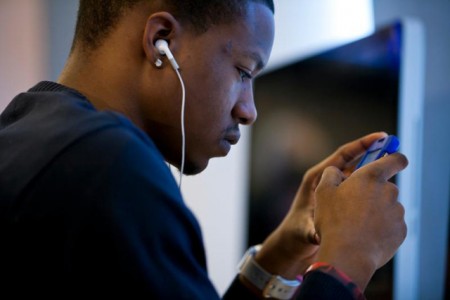Daca nu stiati inca, utilizarea unui telefon mobil pentru perioade indelungate de timp va transforma intr-un egoist, conform unui studiu derulat de catre o universitate din Maryland, SUA. Cercetatorii universitatii au folosit pentru studiu studenti ai unor facultati din Maryland si au ajuns la concluzia ca dupa utilizarea unui telefon mobil acestia devin mai egoisti. Studentii sunt mai putin inclinati sa accepte sa isi ajute semenii, nu doresc sa participe la activitati caritabile si totul dupa doar cateva ore de utilizare a unui telefon mobil.
COLLEGE PARK, Md. – Though cellphones are usually considered devices that connect people, they may make users less socially minded, finds a recent study from the University of Maryland’s Robert H. Smith School of Business. The researchers found that after a short period of cellphone use the subjects were less inclined to volunteer for a community service activity when asked, compared to the control-group counterparts. The cell phone users were also less persistent in solving word problems – even though they knew their answers would translate to a monetary donation to charity.
Se pare ca la baza acestui egoism sta faptul ca utilizatorii isi “satisfac” nevoia de interactiune cu alte persoane prin simpla utilizare a unui telefon mobil care le permite sa se conecteze in mod virtual cu prieteni sau chiar straini. Practic nevoia de socializare este realizata cu ajutorul mediului virtual si nu in lumea reala iar cei care folosesc un telefon mobil pentru cateva ore nu mai simt nevoia de a comunica direct cu semenii lor sau de a ii ajuta. Desigur ca vorbim doar despre un studiu insa cred ca exista printre voi persoane care realizeaza ca el este destul de corect.
The authors cited previous research in explaining a root cause of their findings: “The cellphone directly evokes feelings of connectivity to others, thereby fulfilling the basic human need to belong.” This results in reducing one’s desire to connect with others or to engage in empathic and prosocial behavior. The study also distinguished its subjects from users of other social media — Facebook users — in one of the tests. The authors found that participants felt more connected to others because of their cellphones than because of their Facebook accounts, suggesting that this difference in connectedness was the underlying driver of the observed phenomenon.






















